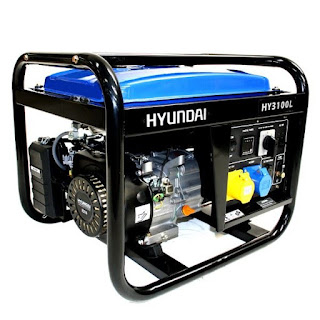More businesses these days are installing a standby generator that will keep them powered if / when the mains power goes down. The way things are in the UK today, there is ever more likelihood of power outages, and if this should happen to you, your business is going to come to a halt. Having a standby generator will enable everything and everyone to keep functioning when the mains power fails.
If you are considering installing a generator, it needs to be of the appropriate size to run all of the equipment that you use in your business. At Blades Power Generation, we have generators in a wide range of sizes, ranging in price from £482 to £20,594, so there is bound to be one that is right for your business. We also have a number of second-hand generators available, so there may be one that is the right size for your business for a lower cost.
Whatever size of generator you need, you will also need a changeover switch. This performs the function of switching off from the mains when the power goes down and then switching to the generator when it is up and running.
There are two types of changeover switch, either a manual changeover switch or an automatic one. Whichever type you choose, that again has to be of the right size. The big advantage of a manual changeover switch is the cost.
Downside
However, there is a downside, as you can imagine. When you have a manual switch and the power goes down, you need to switch off from the mains. You then have to go to the generator and start it up. When it is running at full power, you then have to go back to the manual switch and switch it over to the generator.
Then, when the mains power is back on, you have to go and switch the manual switch to the “off” position, then switch off the generator, then go back to the switch and switch back to the mains.
It is a legal requirement to have a changeover switch because if you did not, and the mains power came into contact with the generator, it would almost certainly burn out the generator. The other way around, if the generator power should backfeed into the mains it could put the lives of workers at risk.
All in all, although an automatic generator is more expensive, it is by far and away the best option.





